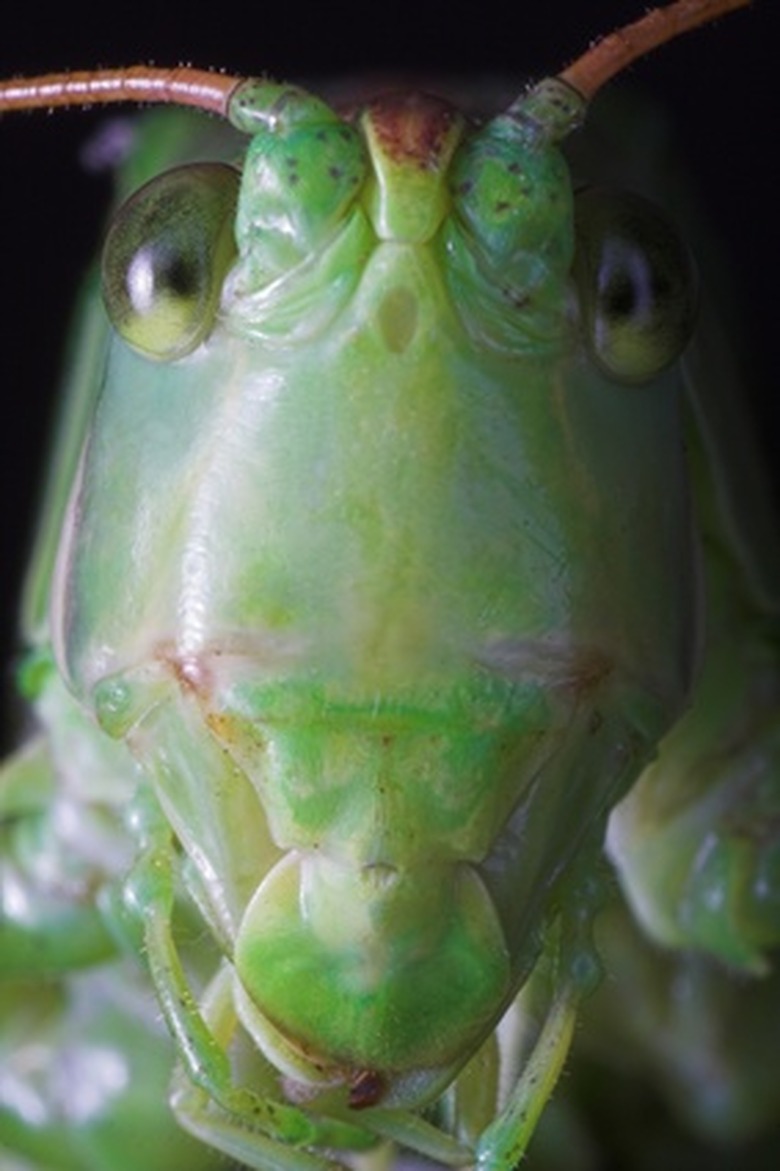How To Keep Grasshoppers Off Plants
Grasshopper infestations seem to be regional and recurrent. If you have them, you'll have them every year, and if you don't, then you probably won't. These beasties are notoriously resistant and practically impervious to chemical controls of all sorts, particularly once they've grown up. But that doesn't mean you have to sit back and watch helplessly as they devour your plants. Take proactive steps to fight back with effective home remedies.
Step 1
Treat your plants with Nosema locustae early in the spring when hatchling nymph grasshoppers are smaller, flightless and more vulnerable than adults. The short-lived microscopic protozoans are voracious grasshopper parasites that won't harm your family, pets or the environment. Follow the packaging instructions carefully.
- Grasshopper infestations seem to be regional and recurrent.
- The short-lived microscopic protozoans are voracious grasshopper parasites that won't harm your family, pets or the environment.
Step 2
Hand-pick grasshoppers from your plants every day and squash them. Don't worry, they feel scratchy when you grab them, but they won't bite you.
Step 3
Spray your plants with Neem oil beginning in early spring. Continue treatments throughout the growing season. Follow the manufacturer's recommendations carefully.
Step 4
Toss polyester bird netting over any favorite plants to keep grasshoppers from accessing them.
Step 5
Attract hopper-devouring bluebirds to your yard by hanging appropriate nesting boxes in open sunny spots during late winter and early spring. Provide bluebirds with as many birdbaths as you can. Hang suet (animal fat) feeders for reliable late fall and winter food sources to keep them hanging around until new grasshoppers hatch for them in the spring.
- Hand-pick grasshoppers from your plants every day and squash them.
- Toss polyester bird netting over any favorite plants to keep grasshoppers from accessing them.
Step 6
Let your chickens and ducks out. They'll have a wonderful time chasing and eating grasshoppers, and they're better at bending over to peek under low-growing plants than you are.
Step 7
Till your soil well once in early fall and again in early spring. This will expose grasshopper eggs to predators and the elements, reducing the numbers of survivors at the next hatch-out.
Tip
Although squirrels are primarily vegetarians, if they're hungry they'll eat grasshoppers so don't chase them away.
Warning
In particularly bad years, grasshoppers may chew through polyester covers. The only exclusionary tactic that works in such extreme cases is metal screening.
Things Needed
- Nosema locustae
- Neem oil
- Polyester row covers
- Bluebird nesting boxes
- Birdbaths
- Suet feeders
